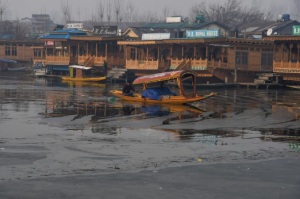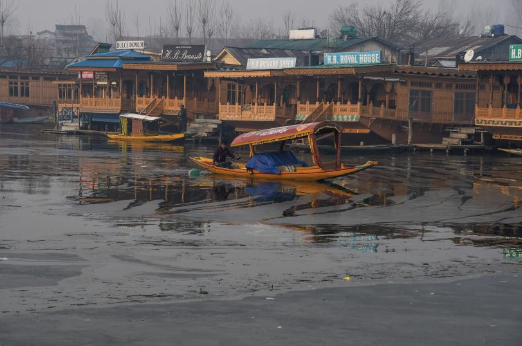SRINAGAR: While the minimum temperature increased in most regions, it remained below freezing, with Srinagar registering a low of minus 2.5°C on Tuesday. According to a meteorological department official, the temperature in Srinagar rose by more than one degree Celsius from the previous night’s minus 3.6°C, and it was 2.7°C colder than usual for this time of year in the summer capital of J&K. According to the MeT official, Qazigund recorded a minimum temperature of minus 1.2°C, which was 0.2°C below typical for the gateway town of Kashmir and minus 3.2°C the night before. Pahalgam reported a low of minus 5.4°C, which was 0.4°C below typical for the well-known south Kashmir resort, compared to minus 7.0°C the night before.The previous night, Kokernag, located in south Kashmir, reported a minimum temperature of minus 0.3°C, compared to minus 2.5°C. The official stated that the temperature was 1.2°C higher than usual for the area. According to the official, Kupwara town in north Kashmir saw a low of minus 4.5°C, down from minus 4.4°C the night before. This was 3.6°C below average. According to the official, Gulmarg recorded a low of minus 4.5°C, down from minus 4.4°C the night before. The temperature was also 1.7°C higher than usual for the well-known north Kashmiri skiing resort. According to him, Jammu recorded a minimum temperature of 8.4°C, which was 1.7°C below average for the winter capital of J&K. A low of 1.0°C was recorded in Banihal, 3.7°C in Batote, and 3.7°C in Bhaderwah, he said. According to the MeT official’s forecast, the weather will mostly be dry through February 17. “Overall, dry weather is expected till February 17,” he stated. “Another wet spell is most likely with possibility of light to moderate snow/rain at many places of J&K from February 18-20.” Kashmir is currently experiencing a 20-day winter period known as “Chillai-Khurd,” which finishes on February 19, and is followed by a 10-day period known as “Chillai-Bachha” (baby cold), which starts from February 20 to March 1. As “Chillai-Kalan,” the 40-day severe time of winter concluded on January 29.


